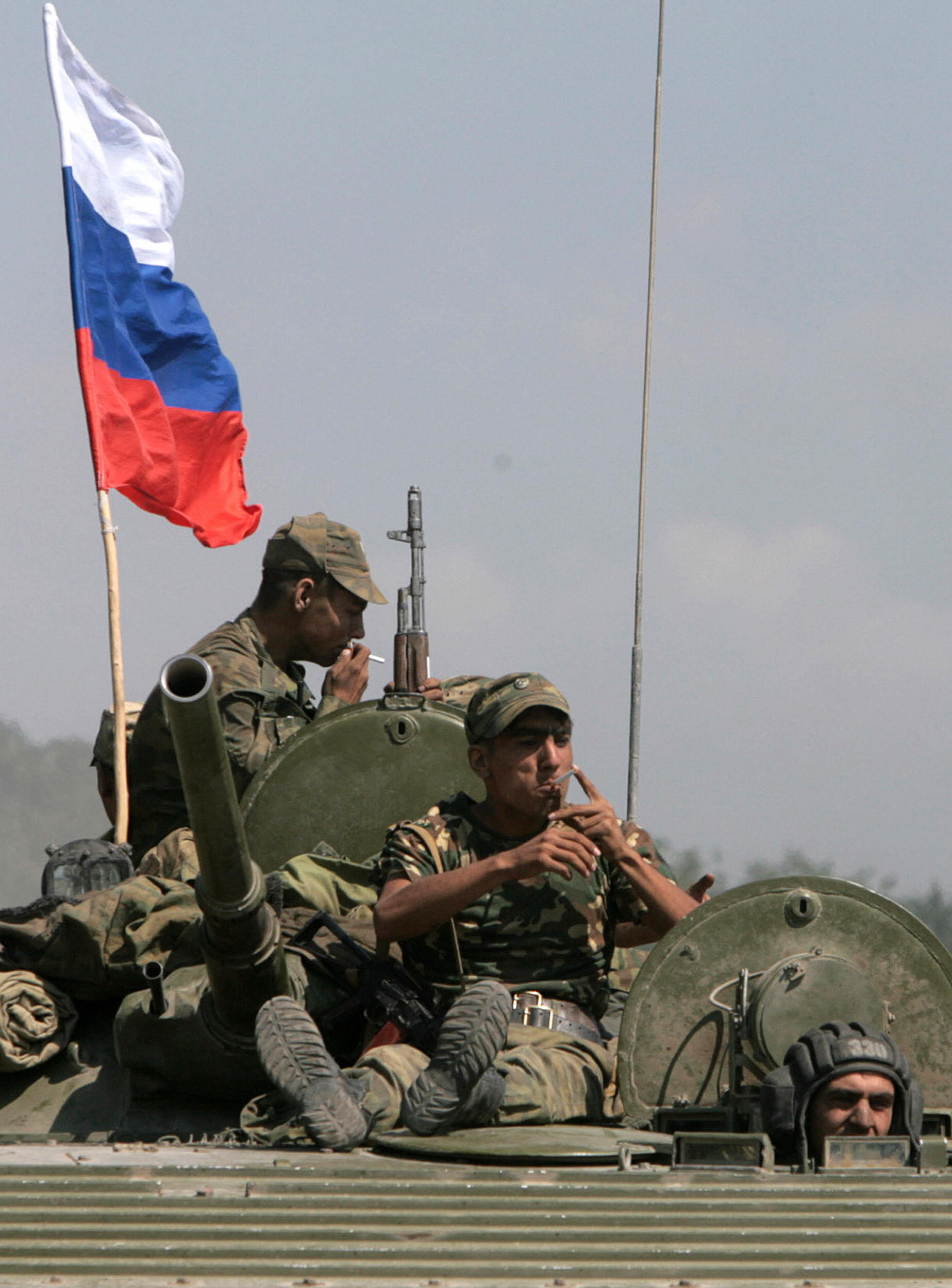 Western policymakers are finally making their official statements on the crisis in South Ossetia. Our own Foreign Secretary, David Miliband, has said he “deplores” the Russian attacks on Georgia. George Bush has called Russia’s actions “disproportionate,” and told Vladimir Putin that “this violence is unacceptable”. Whilst the most ominous warning comes from Dick Cheney, who stated that Russian aggression “must not go unanswered”.
Western policymakers are finally making their official statements on the crisis in South Ossetia. Our own Foreign Secretary, David Miliband, has said he “deplores” the Russian attacks on Georgia. George Bush has called Russia’s actions “disproportionate,” and told Vladimir Putin that “this violence is unacceptable”. Whilst the most ominous warning comes from Dick Cheney, who stated that Russian aggression “must not go unanswered”.
But for all the pejorative languange, just what can the West do? There are several factors counting against military intervention, whether by NATO forces, or by individual countries, such as the US or the UK. Here are some brief outlines:
1) Fullscale war. The number one fear is that military engagement would result in fullscale conflict between Russia and the West. It’s easy to deploy hyperbole here, and talk about “World War Three”. But, certainly, a hot war with Russia would be of enormous singificance; and could prove extremely costly in terms of both military resources and human life. One option has been to up the Western presence in Georgia – e.g. by extending NATO air patrols above the region – to act as a deterrence to Russian forces. But with the Russians already in Georgia, and their planes already in Georgian airspace, it’s hard to see how that wouldn’t end in out-and-out fighting between Russian forces and NATO.
2) Stretched forces. The US and UK forces are stretched enough as it is – fighting wars in Afghanistan and Iraq. The same goes for many other NATO member states. Would they be able to commit to conflict in Georgia, particularly if things escalated as in point 1)?
3) Energy supply. Even if it doesn’t seize control of the BTC pipeline (as I blogged on a couple of days ago), Russia controls a hefty portion of the West’s gas supply. Indeed, the top eight recipients of Russia’s natural gas are all NATO members. If the West were to enter into conflict with Russia, that supply would more than likely be turned off immediately. Not good at any time. Even worse in an era of massive fuel price rises.
4) The Middle East. Russia often acts as the middle man in negotiations between the West and Iran. Losing their cooperation could see things deteriorate in the Middle East.
And so, the hope will be that the situation can be resolved peacefully. But for the reasons listed above, Russia is operating without a Damoclean sword hanging above its head. To some extent, that means it can act with impunity. But it certainly means it holds all the cards should things ever get to the bargaining table.






Comments